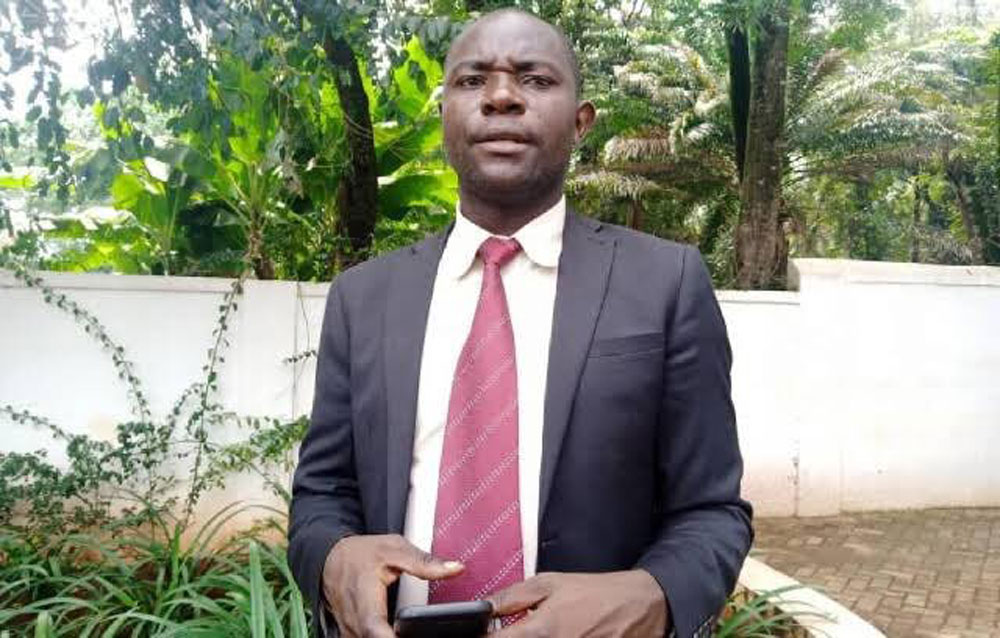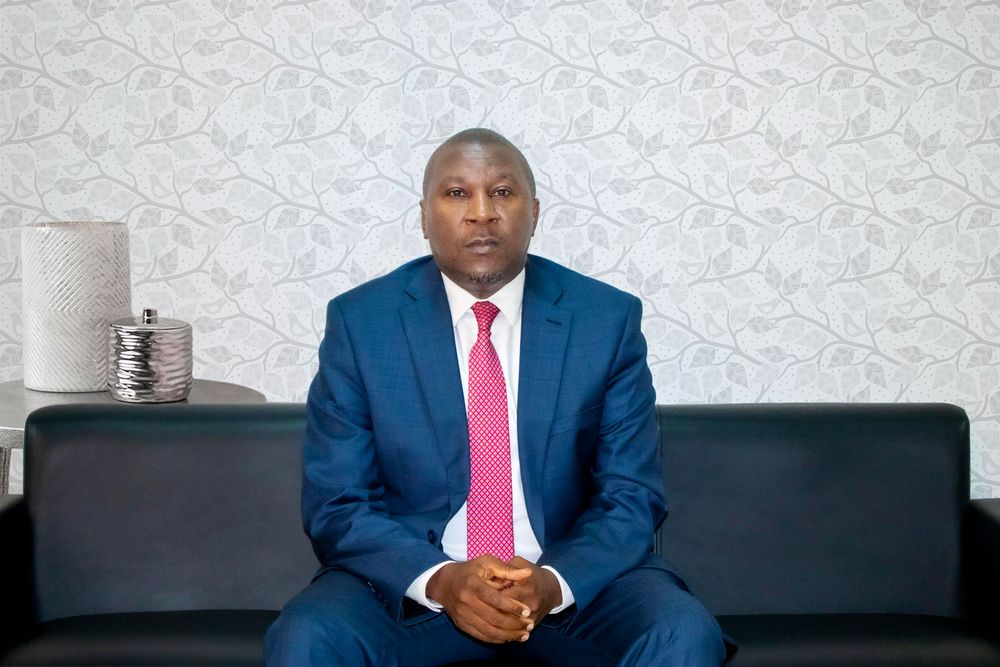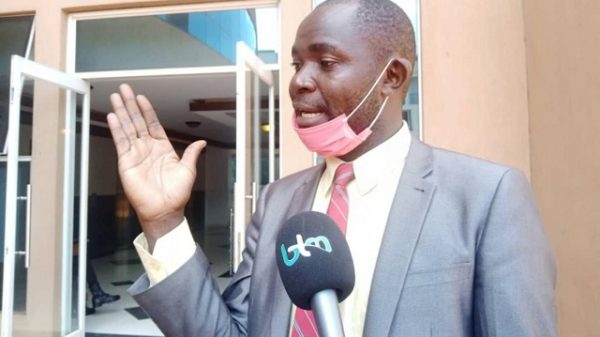Judge Musa Ssekaana recently fined public interest lawyer Male Mabirizi Shs300 million for insulting a judge of the High Court. In the past, the same Judge Ssekaana accused lawyers and victims of human rights violations of conniving to seek excessive sums in compensation, and when Besigye asked for Shs300 million for being kidnapped by security, Judge Ssekaana awarded him Shs10 million.
On December 18, 2019, the Kampala-based public interest litigant Male Mabirizi appeared before the High Court Judge Musa Ssekaana. The lawyer had made an application to cross-examine the Electoral Commission (EC) Chairperson Simon Peter Byabakama in a case in which the lawyer wanted the High Court to nullify Byabakama’s appointment as EC boss on grounds that he didn’t first resign as a Justice of the Court of Appeal before he took up the new appointment.
“Submit your rubbish,” Judge Ssekaana told Mabirizi.
When the hearing of the case resumed in the afternoon, the war of words between the judge and lawyer resumed, with Mabirizi this time going for the jugular and asking the judge to recuse himself from hearing the case on grounds when he was still in private practice, had represented the EC in various parliamentary electoral petitions.
“My lord, I have had enough of the appearance of your bias and I have seen the reality and to me, it doesn’t make any sense to continue being here as if I am in court yet I am actually before Justice Byabakama’s lawyer or Mr Rwakoojo’s [ then secretary of the EC] lawyer,” Mabirizi said.
Judge Ssekaana responded: “Mr Male, you have pushed me to the extreme, and I can do extremes and you may end up in Luzira [prison] … Just give respect to the court and don’t think we are in an LC [Local Council] court. That’s the last time you are doing it.”
Three years later, in a completely different case, Justice Ssekaana fined lawyer Mabirizi a mind-blowing Shs300 million for, in the judge’s estimation, insulting High Court Judge Philip Odoki on social media. Should Mabirizi fail to pay the fine, he goes to jail.
Justice Odoki’s and Mabirizi’s paths crossed in a case in which Mabirizi unsuccessfully challenged the legality of the telecom company MTN floating shares to the public through an Initial Public Offering (IPO) late last year. After Judge Odoki made his decision, Mabirizi took to social media, and using his Twitter handle @MaleMabiriziHKK, fired off at the judge, calling him “corrupt” and “incompetent”.
The Attorney General, who was not party to the MTN case but acting as head of the Bar, filed a contempt of court case against Mabirizi in the Civil Division of the High Court. And the case fell to Judge Ssekaana, who heads the division.
In deciding the matter, Judge Ssekaana remarked: “This court cannot continue to be in a ‘mute mode’ as the authority of the court is under attack. Such attacks on the judicial officers should be condemned in the strongest terms since they have become ‘endangered species’ by social media and usually cannot defend themselves against such attacks,” Justice Ssekaana ruled.
The moment it became apparent that it’s Justice Ssekaana who would handle this contempt application, Mabirizi reacted by writing to the Principal Judge Flavian Zeija, who heads the High Court, asking to be allocated another judge.
On his relationship with Judge Ssekaana, Mabirizi informed the Principal Judge in a letter dated December 23, 2021: “Even when I meet him in court corridors, none of us greets the other and by this letter dated July 10, 2021, the animosity exploded when he illegally ordered the registry staff not to receive my new cases and indeed the received copies were returned to me like trash.”
In his response dated January 3, 2022, Justice Ssekaana dismissed Mabirizi’s request, saying he found no merit warranting him to step down from the case.

Public interest lawyer Male Mabirizi
“I don’t have to greet you in court corridors and it is not a rule of court. Whatever I did by directing the registry staff in rejecting your application was in execution of my administrative entities as head of the division, and it was strictly intended to avoid abuse of court process and register of court,” Justice Ssekaana wrote.
The Shs300 million fine that Judge Ssekaana eventually handed out to Mabirizi for insulting a judge is intriguing was received by many as excessive, and it is no similar value has been handed out as a fine to anyone for contempt of court.
We are aware, of course, that Ugandan judges take very unkindly to being disrespected. In 2020, the Supreme Court sentenced Ivan Samuel Ssebadduka, a petitioner who was appearing before them, to three years in jail for calling them ‘a council of fools’, ‘foolish’, and ‘incompetent’.
Sticking with Judge Ssekaana himself, he has previously handled a number of cases in which he issued fines and awards, and we were unable to find on record any that comes close to Shs300.
In one case, activist Kizza Besigye in 2016 arrived at Entebbe airport aboard a flight operated by Kenya Airways at about 8am. The moment the aircrfaft landed, he was kidnapped by the Uganda Aviation Police (AVPOL) and driven through a route he said he didn’t know, and eventually dumped at his home in Kasangati, Wakiso District.
Besigye, arguing that his rights were violated, sued the Civil Aviation Authority (CAA) and the Attorney General, seeking compensation totaling to Shs300 million for the violation.
He accused the authorities of violation of his right to freedom from torture, cruel, inhuman, or degrading treatment or punishment; the right to freedom of movement and association under Objective I(i), II(i) of the national objectives and principles of state policy and Articles 20, 24, 29 and 50 of the Constitution of Uganda. Besigye’s case was that when he landed at Entebbe airport, men dressed in CAA reflector jackets dashed forward and grabbed him by the trousers and violently pulled him down.
Having found that Besigye was arrested in a crude manner and that his “arrest painted an ugly picture of the country,” Justice Ssekaana awarded him Shs10 million in damages and not the Shs300 million which Besigye had asked for.
In another case, in December 2016, security operatives, including the Joint Anti-Terrorism Task Force (JATT) and the police, raided and ransacked Nakasero Mosque at dawn. Worshippers said 13 men who were inside were instantly arrested and their hands were tied to their backs as the security men continued to break into the mosque’s administrative space, treasury, and the stores from where they picked a desktop computer, some vital documents, and cash totaling to more than Shs16.1 million.
In 2017, Siraje Kifampa and Yusuf Musa Musuda dragged the Attorney General to the High Court, accusing security operatives of raiding, breaking into, and ransacking Nakasero Mosque with or without a search warrant, saying it was “unlawful and unjustifiable”. The duo wanted the court to direct the Attorney General to avail them in particular and other members of the Jamiyyat Daawa Assalafiyyah Muslim Community of Nakasero Mosque in general, with an inventory of all items including but not limited to the computers, mobile phones, motorcycles, money, documents and compact disks containing Islamic teachings that were confiscated during the raid.
Besides asking the court to order the Attorney General to unconditionally return to the confiscated items, the duo also asked Justice Ssekaana to order compensation to the members of Jamiyyat Daawa Assalafiyyah Muslim Community of Nakasero Mosque with general, special, aggravated and punitive damages in Shs50 billion.
Justice Ssekaana, in his findings, said when conducting a search on-premises, the law enjoins security operatives, either to have a search warrant or a warrant card, but in this case, the Attorney General didn’t present either of these documents to prove the legality of the search that was carried out by police.
The judge added: “Regarding the circumstances in this case, I find that the search was illegally and unlawfully conducted and there was a violation of the right to privacy under Article 27 of the constitution.”
The judge also agreed with Kifampa and Musuda’s contention that the security operative’s entry, search, and seizure of cash and numerous properties of the faithful from Nakasero mosque was carried out in contravention of the law. The failure to have or secure a search warrant or warrant card, the judge said, could have aggravated the situation since there were no guidelines on how the search was to be conducted.
“The police raided the mosque as if they were raiding a market place, which is a clear violation of the freedom to worship and the right to practice the Islamic faith teachings. Places of worship should be searched in a manner that preserves the dignity and sanctity of the place, and above all in an orderly and organized manner,” Justice Ssekaana said. “The violation at the places of worship affects the entire community and persons who profess and practice that religion. This could have far-reaching effects on the entire country due to the recklessness of persons who are carrying out the search.”
Justice Ssekaana added that raiding of the mosque violated the rights of Muslims under Article 29 and 37 of the constitution, and that security operatives ought to have conducted their search with high regard to the traditions of the members of the mosque.
Nevertheless, when it came to awarding damages, Justice Ssekaana gave the duo Shs50 million, rejecting their Shs50 billion demand. In that regard, he said: “In the present case, the applicant’s counsel sought Shs50 billion as damages. I don’t know how counsel imagined such a huge amount without even laying any basis for such a claim.”
The judge added: “It would appear that human rights cases have become commercial transactions/deals between lawyers and the victims of human rights violations. The court finds the award of Shs50 million as sufficient and adequate compensation for the violation of the applicants’ rights and all other Muslim faithful under Article 29 of the constitution. The compensation shall be paid to Nakasero Mosque administration (Jamiyyat Daawa Assalafiyyah Muslim Community).”
We asked within the legal circles to find out whether there are guidelines on amounts a judicial officer may award in damages or slap on an accused and the picture that emerges is that there are none. But whatever the case, when a judge fines an accused Shs300 million for contempt of court and the same judge has in the past awarded someone he has found to have been kidnapped by security operatives Shs10m, questions are bound to arise.



